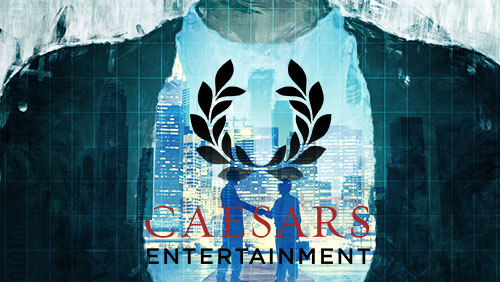Fasig-Tipton has cataloged 1,250 yearlings for The October Sale, scheduled Oct. 24-26 in Lexington. The three continuous sessions will begin each morning at 10 a.m. for the Monday through Wednesday sale.
Monthly Archives: September 2016
Fasig-Tipton October Catalog Available
Fasig-Tipton has cataloged 1,250 yearlings for The October Sale, scheduled Oct. 24-26 in Lexington. The three continuous sessions will begin each morning at 10 a.m. for the Monday through Wednesday sale.

Anti-casino license ‘warehousing’ bill advances in US
A proposed measure that will prevent the manipulation of bankruptcy law and gaming licensing is finally getting steam in the U.S. Senate.
Press of Atlantic City reported that the New Jersey’s Senate Budget and Appropriation Committee has approved a bill that would disqualify a casino license applicant for five years if that person “substantially” closes a casino in the state. The bill now goes to full Senate for a vote.
Senate President Stephen Sweeney and Deputy Speaker John Burzichelli, both D-Salem, Gloucester, Cumberland sponsored the bill, which aims to amend existing law that gives gaming regulators the responsibility to require license holders to abide by certain standards.
In his earlier interviews, Sweeney pointed out that the bill was introduced to the Senate to calm the public over the possibility that the beleaguered Trump Taj Mahal Casino Resort will close and “warehouse” the license, or reopen the casino with reduced wages for workers.

US forms caucus to shape policies related to digital currency
Washington is stepping up its efforts to help policymakers understand decentralized technologies such as the bitcoin blockchain.
Rep. Mick Mulvaney, R-S.C., and Rep. Jared Polis, D-Colo., announced the formation of a new congressional member organization, the Congressional Blockchain Caucus, which will be dedicated to the “advancement of sound public policy toward cryptocurrencies and other blockchain-based technologies.”
The two lawmakers have teamed up with Washington D.C.-based non-profit and advocacy center group Coin Center, which has been focusing its efforts to help Congress understand the inner workings of bitcoin and blockchain technology.
“For the past two years we have worked with Representatives Mulvaney and Polis to educate their colleagues through briefings and other events, and the new Congressional Blockchain Caucus will be a wonderful new platform to continue these efforts,” Jerry Brito, executive director of Coin Center, said in a blog post. “Their forward-thinking leadership on blockchain technology in Congress is unmatched.”

76ers ventures into eSports with a pair of franchise buys
Professional sports teams making a direct investment in eSports franchises is an unheard of event in the United States. Until now, that is.
On Monday, the Philadelphia 76ers announced that it has acquired not one, but two eSports teams—Team Apex and Team Dignatas—making the Sixers the first U.S. sports organization to control a professional competitive gaming outfit.
Owners Michael O’Dell and David Slan plan to combine the two eSports franchises under the Team Dignatas banner. The team will compete in League of Legends, Counter Strike: Global Offensive, Overwatch and Heroes of the Storm, while the 76ers will handle player recruitment, marketing and sales, and a host of other day-to-day operations.
The acquisitions were made by 76ers in partnership with venture firm NextEquity. Financial terms of the deal were not disclosed, but Sixers CEO Scott O’Neill stressed that the eSports teams were “a really fun property that we think has a really big upside.

Is Caesars’ Deal Enough To Ensure Long Term Survival?
It looks like Caesars may have finally squared the circle. According to press releases by the company and its myriad of subsidiaries both bankrupt and not bankrupt, all of the major creditor groups of Caesars Entertainment Operating Company (the “Bad Caesars” with all the debt) have agreed to a term sheet. Nothing has been signed yet, but they wouldn’t be putting out press releases of optimism unless they were sure they have already cleared the major hurdles.
In the words of the press release:
Representatives of the Ad Hoc groups of the First Lien Bank Lenders, the First Lien Noteholders, and Subsidiary Guarantee Noteholders, as well as the Official Committee of Second Lien Noteholders, have confirmed those creditors’ support for the term sheet, subject to the negotiation of and entry into definitive support agreements, and the Revised Plan of Reorganization to implement the agreed upon terms.
Before we get into exactly what Caesars did here in a mathematical sense, the following is what they did practically. First, they separated all the good assets from the toxic ones so creditors couldn’t get at anything with actual value. That we all know and have for some time. Second, they dithered and slithered in courts for years to completely wear down the other side in a litigation war of attrition, knowing that as long as they could keep the case open and the courts constipated worse than someone on 24-hour opiates who has eaten nothing but hay for a decade, they wouldn’t be forced to actually cough up anything. So they milked that as long as they could in a financial siege. That clock ran out when the judge presiding over the case made an explicit threat to end the charade and force a deal not in Caesars’ favor if a voluntary deal was not reached by the end of September. It’s now the end of September, and it looks like we have one.

Dwindling lottery players puts UK sports program at risk
The British sporting program may face budget cuts should the downward trend of UK’s lottery takings continue.
The Daily Telegraph reported that the first quarter revenue of the British lottery dropped by more than 8.5 percent to £158.8 million (US$205.85 million) compared to the same period in 2015. The report attributed the revenue decrease to the dwindling number of people playing the National Lottery.
Around two-thirds of funding for Britain’s Olympians and Paralympians comes from the Lottery and any sustained dip would lead to a reduction in the £350 million they currently get from UK Sport over a four-year period.
If the trend continues, UK Sports may have to cut the amount it gives to some sports unless the Government agrees to increase its own contribution to the organization’s budget. The slowing lottery revenue will also force UK Sport to allocate its resources on sports programs where UK has the best chance of success in 2020 and 2024.
Simon Murphy: TV and bingo firms must establish deeper relationship
In this interview with CalvinAyre.com’s Rebecca Liggero, Simon Murphy of FremantleMedia shares how television and bingo firms can mutually benefit from each other.
Loading the player…
G2E Las Vegas 2016 Day 1 Recap
Loading the player…
jwplayer(‘camediasplayer’).setup({

Battling with the Big Boys: An Insider’s Insight
This is a guest contribution by CEO of 21Bet, Richard Hogg. If you would like to submit a contribution please contact Bill Beatty for submission details. Thank you.
21Bet is a new entrant to the UK betting market, launched in March 2016. Here, 21Bet CEO Richard Hogg discusses the challenges and pitfalls facing an upstart operator in the highly competitive UK online betting sector.
When we first talked about setting up a new UK-focused bookmaker in 2015, people thought we were mad. How could we possibly compete with the industry’s giants they asked, especially given the vast amount the marketing and publicity resources they have at their disposal? Well, we thought we could do things differently.
We saw a gap in the market for an online sportsbook that would take betting back to basics. Collectively as a team, we have decades of experience in the UK sports betting industry and this, together with market and consumer research, told us what customers want. Primarily, this is about offering easy to find bets on the sports and markets people want to bet on.

Nominations open for new look SBC Awards recognising the cream of the sports betting industry
London, September, 2016: The SBC Awards is the culmination of a landmark year for the betting industry, which has seen a wave of consolidation, a profitable European Championships, the rise of DFS and esports, and the inaugural Betting on Sports conference.
SBC is inviting the industry to join in with the year-end celebrations and nominate companies for one of the 15 awards created to recognise the best the industry has to offer.
Companies have until 25th October to enter.
The ceremony will be held on Wednesday 7 December at Under the Bridge, the prestigious £20 million club venue built underneath Chelsea FC’s Stamford Bridge to play host for artists such as Beyoncé and Bruno Mars.

Aussie pols ask whistleblowers to send them Pokie-Leaks
Australia‘s anti-gambling politicians are attempting to take a page out of Julian Assange’s playbook by launching a quest for dirt on the nation’s pokies industry.
Australians have the world’s highest per capita spending on gambling, and while sports betting’s popularity is increasing, it’s the ubiquitous video poker machine (pokies) industry that claims the overwhelming bulk of the nation’s gambling dollars.
Independent Senator Nick Xenophon, who has built most of his political career on ‘tough on gambling’ posturing, has just launched a new ‘Pokie-Leaks’ campaign that asks gambling insiders to come forward with incriminating information on the multi-billion-dollar pokies industry.
Xenophon, along with Independent MP Andrew Wilkie and Greens Senator Larissa Walters, say they will use parliamentary privilege to protect the identity of any pokies whistleblowers who provide them with info on industry tactics – including illicit payments made to other politicians to impede anti-pokies legislation – as well as the nuts and bolts of poker machine design.
Ontario Lottery scraps privatization plan
The Canadian province of Ontario has scrapped plans to privatize its state-run lottery business.Ontario LGC, Privatize Lottery, Operations
Report: Ohio Lottery should make changes to organization
If Ohio follows the recommendations of a study of the state lottery, changes could be coming, including adding electronic table poker, online gaming, and a greater variety of instant tickets.Ohio, Study

G2E 2016 Highlights Future of Legal US Sports Betting, Skill-Based Gaming, at Las Vegas Expo
Each year, the Global Gaming Expo (G2E) brings the future of gambling to Las Vegas. The event, which kicked off on Monday, will be at Sands Expo on the Las Vegas […]
The post G2E 2016 Highlights Future of Legal US Sports Betting, Skill-Based Gaming, at Las Vegas Expo appeared first on .

Kahnawake-licensed gambling sites to cease US-facing business
The Kahnawake Gaming Commission (KGC) will no longer permit its online gambling licensees to serve customers in US states after a Kahnawake-based data center specialist was caught violating its New Jersey license.
On Monday, the New Jersey Division of Gaming Enforcement (DGE) announced that it had reached an understanding with the KGC to ensure that Kahnawake-based websites would not accept customers from any US state in which such activity would be illegal. The new policy takes effect as of Sept. 30.
Continent 8, a Kahanawake-based data center specialist, was issued a transactional waiver by the DGE in 2014 to allow it to operate in New Jersey’s regulated intrastate online gambling market. Last fall, Continent 8 was cited in a New York Times report that claimed many US-facing operators were using Continent 8’s services.
The Times followed up its investigation by contacting a DGE spokesperson, who expressed surprise at the revelation, saying Continent 8 “has an obligation to conduct due diligence with respect to its customers” and that the DGE “would commence regulatory proceedings” against Cont 8 if the company was found to have knowingly done business with US-facing operators.

RAWA Style Legislation To Ban Online Poker Is Introduced In US Senate
The Restoration of America’s Wire Act (RAWA) is back. Or, at least, something a bit like RAWA is back. Last week Senator Tom Cotton (R-Arkansas) introduced bill S.3376 to the […]
The post RAWA Style Legislation To Ban Online Poker Is Introduced In US Senate appeared first on .
The RNA Conundrum at Public Auctions
Keeneland reported there were 1,006 yearlings that went unsold at the September yearling sale, for an RNA rate of 26.5%. In reality, the RNA rate was considerably lower due to the large number of horses that sold after they left the ring.
The RNA Conundrum at Public Auctions
Keeneland reported there were 1,006 yearlings that went unsold at the September yearling sale, for an RNA rate of 26.5%. In reality, the RNA rate was considerably lower due to the large number of horses that sold after they left the ring.

Jesse Sylvia Wins Main Event At WPT Borgata Poker Open
Jesse Sylvia, perhaps best known for finishing second in the 2012 WSOP Main Event, won the WPT Borgata Open Main Event on Friday night. The US pro beat fellow American […]
The post Jesse Sylvia Wins Main Event At WPT Borgata Poker Open appeared first on .